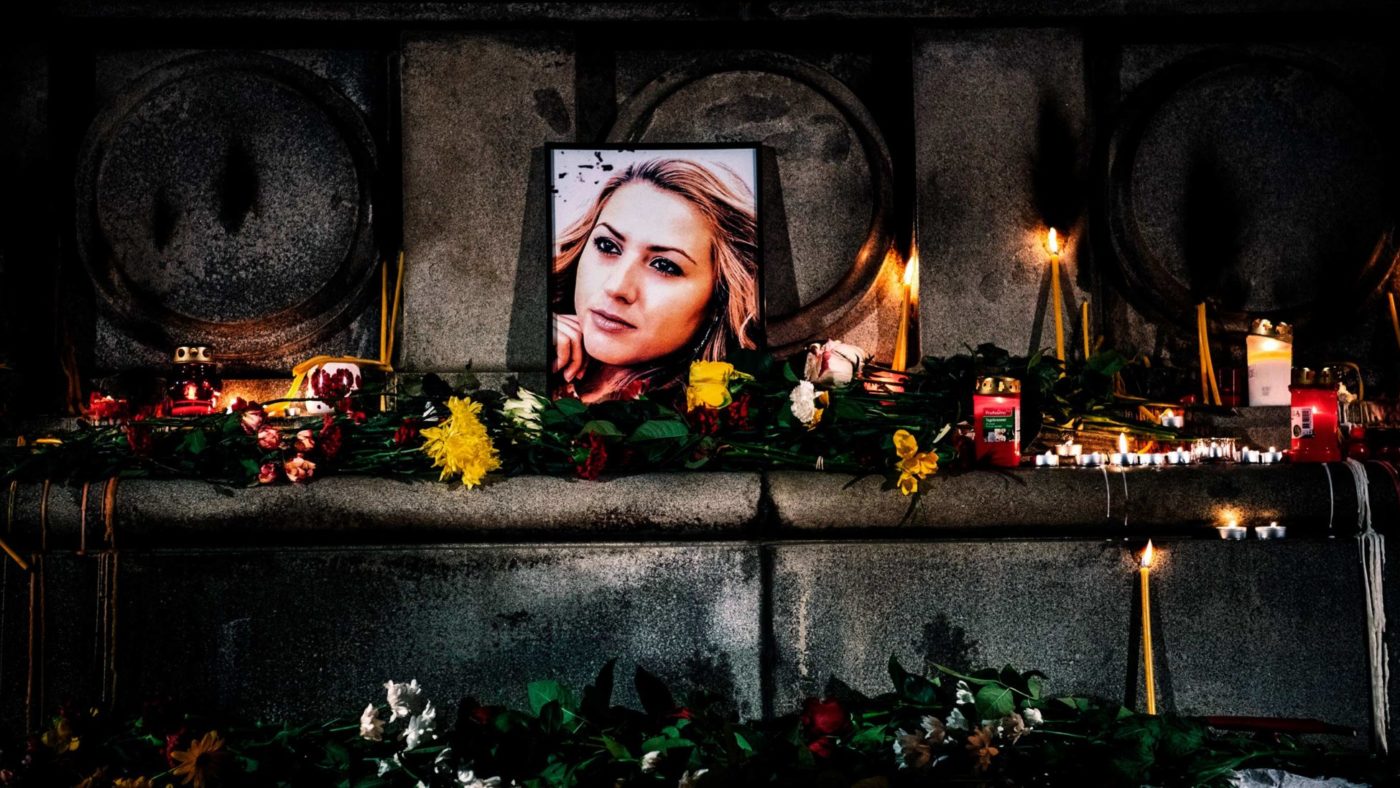The brutal rape and murder of journalist Viktoria Marinova in Bulgaria last week caused shock around Europe and the world. While the killing has not yet been connected to her work, it has still left a feeling of unease, as it is only the latest in a disturbing series of murders of journalists on the continent in the last couple of years. The number is now up to seven since early 2017, as freedom of press looks increasingly under threat.
Along with Marinova’s case, the murders of Slovakian journalist Ján Kuciak in February 2018 and Daphne Caruana Galizia, a Maltese reporter killed by a car bomb in October 2017, have highlighted the dangers of speaking truth to power.
What all three – and much of the recent harassment of journalists — have in common is that those journalists had reported on corruption and money-laundering by politicians. Marinova had only recently welcomed guests on her TV show presenting evidence of misused EU funds. Caruana Galizia had investigated the Panama Papers and how Malta’s politicians were involved in the scandal. And Kuciak conducted research on links between the ruling party Smer-SD and the Italian Mafia, including possible links to Prime Minister Robert Fico. In the aftermath of Kuciak’s death, several Slovak ministers were forced to resign including, eventually, Fico himself.
All of this is merely the tip of the iceberg. Much has been written about Hungary’s increasingly monopolised pro-Fidesz press – and rightly so, but other countries are following a similar path. In the Czech Republic for instance, President Milos Zeman pulled out a dummy Kalashnikov at a press conference with the words “for journalists” written on its side. At another point, he pronounced his wish to “liquidate” reporters. It seems animosity towards the media is far from confined to the Oval Office.
In this year’s Press Freedom Index by Reporters Without Borders, four of the five biggest drops in the global ranking were European countries. And that’s before we come to the broader issue of attacks on freedom of speech, exemplified by Germany’s new law against “hate speech” which came into effect early this year (and which the UK seems to want to replicate).
The EU too seems determined to stick its oar in. The same week as Marinova’s death, Věra Jourová, the Commissioner for Justice, Consumers and Gender Equality, argued in a speech in Vienna that the EU should “advocate for a European approach to media based on quality and smart regulation”, arguing that the work of the media should be monitored “more broadly than just following the laws of the markets.” Quite who gets to decide what “quality” means is less clear, though one imagines it would be some committee or other in Brussels.
One supporter Jourova can probably count on is the Commission President Jean-Claude Juncker, who has made clear his views on the workings of the media. Seemingly still being personally offended by reports earlier this year that he is drinking a bit too much, he recently declared that “press freedom also has its limits” — in this case a reference to British newspapers giving him a hard time. Indeed, Juncker mused, “the British press is such that I will not miss it” after Brexit. That’s before we even mention Jeremy Corbyn’s warning that “change is coming” to the British press if he takes power in the UK.
The fact that Juncker, Jourová, and an alarming number of authoritarian European leaders want to muzzle reporters is as good an argument as any for enhancing press freedom. After all freedom of press exists precisely so that anyone can say and write what others, particularly the ruling elite, do not agree with. As the former US Congressman Ron Paul says, “we don’t have freedom of speech to talk about the weather”. Instead, we have it “so we can say some very controversial things.”
In a time in which supposedly liberal democracies increasingly clamp down on opinions that are uncomfortable by deeming them “hate speech” or “fake news”, when journalists are harassed and often under threat of physical violence attack, and when voices on both left and right are calling for more regulation, if not nationalisation, of the media, it’s never been more important to fight back.
It is also essential to keep in mind what the great American Founding Father Thomas Jefferson noted when he said that “were it left to me to decide whether we should have a government without newspapers or newspapers without a government, I should not hesitate a moment to prefer the latter.” When it comes to freedom of press and speech today, the fate of journalists like Viktoria Marinova is far more important than the hurt feelings of powerful men like Jean-Claude Juncker.


